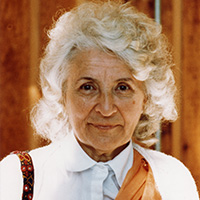A Quote by Margaret J. Wheatley
I've found that I can only change how I act if I stay aware of my beliefs and assumptions. Thoughts always reveal themselves in behavior.
Related Quotes
SETH said: The natural person is to be found, now, not in the past or in the present, but beneath layers and layers of official beliefs, so you are dealing with an archeology of beliefs to find the person who creates beliefs to begin with. As I have said often, evidence of clairvoyance, telepathy, or whatever, are not eccentric, isolated instances occurring in man's experience, but are representative of natural patterns of everyday behavior that become invisible in your world because of the official picture of behavior and reality.
Class is much more than Marx's definition of relationship to the means of production. Class involved your behavior, your basic assumptions, how you are taught to behave, what you expect from yourself and from others, your concept of a future, how you understand problems and solve them, how you think, feel, act.
Silence allows you to watch your mind and become aware of the thoughts that you may be acting on unconsciously. When you see the thoughts, you can make a conscious choice to act on the thought or change your mind, instead of going along with the noise. I have seen people who don't want to look at themselves keep going until something happens that makes them stop — a sickness or an accident — but it gives them that reflective, quiet space where they can face what is difficult in their mind. We each have a unique purpose to fulfill in this life and inklings can come in those quiet moments.
Since you alone are responsible for your thoughts, only you can change them. You will want to change them when you realize that each thought creates according to its own nature. Remember that the law works at all times and that you are always demonstrating according to the kind of thoughts you habitually entertain. Therefore, start now to think only those thoughts that will bring you health and happiness.
Writing is an act of hope. It means carving order out of chaos, of challenging one's own beliefs and assumptions, of facing the world with eyes and heart wide open. Through writing we declare a personal identity amid faceless anonymity. We find purpose and beauty and meaning even when the rational mind argues that none of these exist. Writing therefore, is also an act of courage. How much easier is it to lead an unexamined life than to confront yourself on the page?
An extremely important part of our work toward emotional growth and change will come from examining our belief systems regarding all areas of life. To gain the courage to be yourself, you need to address the beliefs that are keeping you stuck where you are. What beliefs, assumptions, and attitudes are you holding onto even though they no longer enhance your life? It is possible to free yourself from worn-out beliefs and acquire ones that bring happiness, strength, and self-esteem. What we believe we may become.
The difference between a good educator and a great educator is that the former figures out how to work within the constraints of traditional policies and accepted assumptions, whereas the latter figures out how to change whatever gets in the way of doing right by kids. 'But we've always...', 'But the parents will never...', 'But we can't be the only school in the area to...' - all such protestations are unpersuasive to great educators. If research and common sense argue for doing things differently, then the question isn't whether to change course but how to make it happen.






































